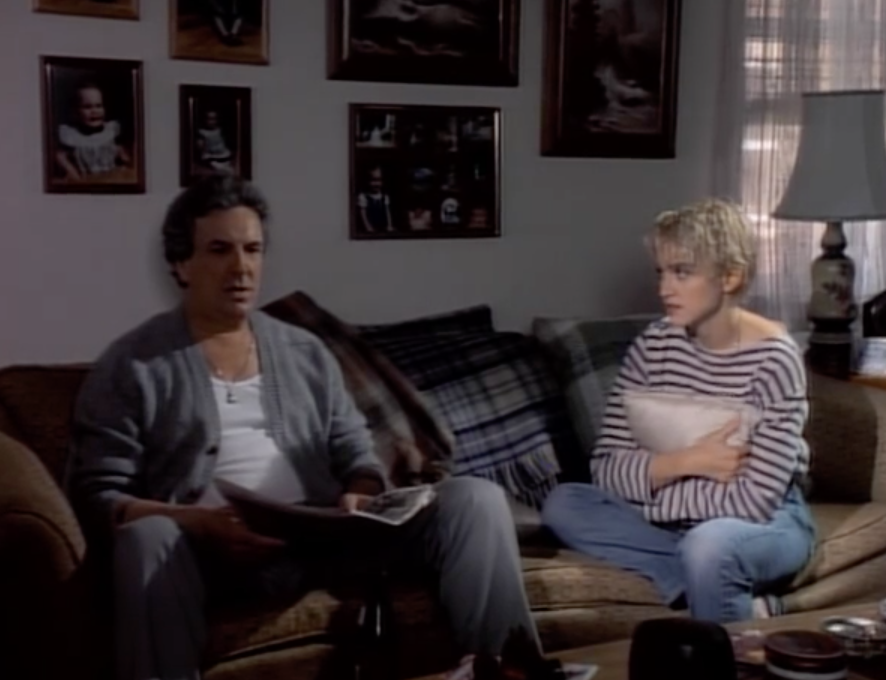Quite possibly more than any other piece of pop culture, musically speaking, Madonna’s “Papa Don’t Preach” speaks to just how intense and often contentious the father-daughter relationship can be. Based on an actual conversation between a group of high school girls that songwriter Brian Elliot heard outside his studio in the mid-80s in North Hollywood, the fraught-with-repression content of the lyrics is an accurate inner monologue of any girl who must confront her father with information she’s afraid he’ll disapprove of or that will disappoint him. Dealing with the subjects of teen pregnancy and abortion, the track is one of the most pinnacle examples of what tends to cause the very first schism between father and daughter: her stronger love for another man.
In addressing this transition to female adulthood, a.k.a. the sexual awakening that comes with a girl’s first romantic love, “Papa Don’t Preach” is easily one of the tautest, most succinct insights into why the bond between a dad and his female child can be so fragile. In addition to the father figure being the first male in a girl’s life that gets knocked off his pedestal, his fall from grace is also the most profound and, therefore, scarring. As she turns to other male energies for comfort (and physical satisfaction), her father gradually loses his influence, and the power she allows him to exert over her.
And yet, at the same time, whenever she finds herself in a crisis, he is still always the one her mind automatically goes to when thinking of who to ask for counsel. After all, “You always taught me right from wrong/I need your help, daddy, please be strong.” What’s worse, of course, is when the pickle a daughter finds herself in (or on) is precisely what (or who) her father warned her about. “The one you warned me all about, the one you said I could do without” is, naturally, the one who turns out to be just what daddy-o predicted. A daughter’s insistence in being right about the object of her affection, of his ability to treat her just as well as he can is exhibited by Madonna’s earnest “Daddy, daddy if you could only see just how good he’s been treating me.” But like so many men that aren’t daddy, a boy is liable to turn on a dime when it comes to his emotions, particularly if the threat of a child is looming. The video that accompanies the song, however, makes us all understand just why Madonna is so adamant about keeping this boy separate from her father (played to Italian American perfection by Danny Aiello). He’s one of those blue collar, tank top wearing greasers–a mechanic type who will never be good enough for his little girl–though he might be good looking enough.
As Madonna–in her stead as the representation of the entire female population that struggles to tell their father any information pertaining to their sex life–grapples with how to tell her dad about just how much “trouble” she’s in (in between enjoying a romantic ferry ride to Staten Island with her boo, of course), we can see that no matter what, the walls between a father and daughter can always be broken down, regardless of how uncomfortable it is. After all, it’s a lot easier than dealing with the mother-daughter relationship, which while not as creepy on the sexual front, stokes a lot of unwanted competitive fires and feelings of rage.
Which “baby,” exactly, Madonna plans to keep by the end of the “Papa Don’t Preach” is left to the listener’s discretion–though one imagines that a teen girl’s primary concern would be holding onto the guy and ditching the spawn. Poor Papa, he doesn’t even factor in to the baby equation at all. After all he gave, too.



















